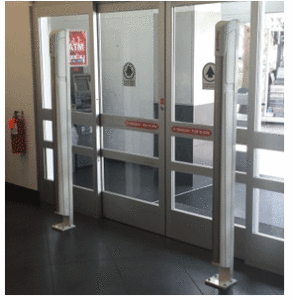 If you’re in retail management, and if you’ve been paying attention, you know your employees are the first line of defense against both internal and external fraud. Employees who are satisfied with their jobs are much more likely to care about co-worker and customer theft. They’re more vigilant and report it more often than those who are unhappy with their jobs.
If you’re in retail management, and if you’ve been paying attention, you know your employees are the first line of defense against both internal and external fraud. Employees who are satisfied with their jobs are much more likely to care about co-worker and customer theft. They’re more vigilant and report it more often than those who are unhappy with their jobs.
And yet, most managers don’t know how to motivate others. They don’t understand that effective motivation skills need to be learned and practiced, just like other valuable management skills. Supervisors who are interested in creating a productive work environment will learn the helpful techniques.
There’s no “one size fits all” magic process – below are 5 of the most common ways people are motivated. Employees can be motivated by a combination of these approaches; none of them are better or worse than the others, they’re just different. Everyone has a preferred way of being motivated and they respond more positively to their way.
Words – People motivated by language need to hear or read words of affirmation. Link the words of appreciation to a specific task – “Thank you for being so attentive to that customer” or “I appreciate the creativity you put into that display”.
Time – The opportunity to spend time with and talk to management, one on one or in a small group, is important to these types of employees. They need a meaningful way (quality time) to interact and feel listened to.
Deeds – These are people who are motivated by actions showing appreciation or interest: actual pats on the back, getting them a cup of coffee, letting them leave early on a bad weather day, point out their favorite donut is in the box, etc. Be careful about this one, at all times be professional.
Need for Community – Employees who have a need for community want to be part of the group. They organize the softball game, Secret Santa and birthday parties. They’re motivated by being part of a team and respond to activities that support teamwork.
Monetary Rewards – Contrary to popular thought this is one of the weakest motivational tools; most people are motivated by non-monetary methods. Employees who are motivated in this manner respond to raises, sales contests, gifts tied to quotas, bonuses for performance, etc.
It’s important to note that some workers will reject positive management intervention, but they’re the minority. Most employees will respond to one or more of these techniques. Mangers that put time and effort into developing motivational skills will make their jobs, and personal relationships, easier and more rewarding.
Nicole Abbott is a professional writer who’s had over 200 articles published. She’s a business consultant and former psycho-therapist with over 20 years of experience in mental health, business and addiction. She’s a coach, lecturer, trainer and facilitator. She has conducted over 200 workshops, trainings, presentations, seminars and college classes.

 You know, we talk about the thousands of ways you, the small business owner, loses money to thieves constantly. Most of that is centered on shoplifters and boosters stealing your merchandise. We talk about that for good reason… it’s one of the biggest financial impacts to your business if left unchecked. However, there are so many other ways that your business can be targeted by criminals and some of them may appear so legitimate, that you would have no idea you were a victim for weeks. In that time, the criminal is long gone and you’re left paying for that theft out of your pocket. One area of training that is often overlooked in retail is check fraud. I’ll give you some advice on how to identify this in your store and protect yourself from vulnerability.
You know, we talk about the thousands of ways you, the small business owner, loses money to thieves constantly. Most of that is centered on shoplifters and boosters stealing your merchandise. We talk about that for good reason… it’s one of the biggest financial impacts to your business if left unchecked. However, there are so many other ways that your business can be targeted by criminals and some of them may appear so legitimate, that you would have no idea you were a victim for weeks. In that time, the criminal is long gone and you’re left paying for that theft out of your pocket. One area of training that is often overlooked in retail is check fraud. I’ll give you some advice on how to identify this in your store and protect yourself from vulnerability. What is the solution to shoplifting and employee theft?
What is the solution to shoplifting and employee theft? Employee theft is a common and costly problem in retail. Some businesses’ are reporting that, for the first time, internal pilferage has now surpassed external. There are many ways to control and manage internal theft. But, one of the most effective ways is often overlooked. Stop it before it starts.
Employee theft is a common and costly problem in retail. Some businesses’ are reporting that, for the first time, internal pilferage has now surpassed external. There are many ways to control and manage internal theft. But, one of the most effective ways is often overlooked. Stop it before it starts. It’s no big secret that I can’t stand a thief; I did make a career out of catching them. Shoplifters really get under my skin, but employee theft really fires me up. You put people to work, give them opportunity to grow and instead of putting in the long hours, hard work and dedication needed to move forward, they steal from you. They betray your trust, slap you in the face and take money out of your pocket and food off your family’s table. Will you ever stop employee theft completely? Probably not. You can, however, minimize the risk.
It’s no big secret that I can’t stand a thief; I did make a career out of catching them. Shoplifters really get under my skin, but employee theft really fires me up. You put people to work, give them opportunity to grow and instead of putting in the long hours, hard work and dedication needed to move forward, they steal from you. They betray your trust, slap you in the face and take money out of your pocket and food off your family’s table. Will you ever stop employee theft completely? Probably not. You can, however, minimize the risk.
 It was 4:30am on a Tuesday morning. My company cell phone pierced through the quiet halls of my house. At first, I didn’t get out of bed; perhaps it was a wrong number. Silence. As I doze back off, I hear the familiar tone once again. Who could be calling me and for what reason at this hour? I let it ring. I hear the chirp of the voicemail. Before I can muster the energy to get out of bed, I hear my personal phone ringing. This one is next to me on the night stand. Something is wrong, I immediately think to myself. When I reach for my phone in the middle of the dark room, eyes still blurry, I see the caller ID. It’s a sheriff’s deputy that I’m good friends with. My heart is in my throat as I answer. “You’re morning crew was just robbed at gunpoint. Get to the store now.”
It was 4:30am on a Tuesday morning. My company cell phone pierced through the quiet halls of my house. At first, I didn’t get out of bed; perhaps it was a wrong number. Silence. As I doze back off, I hear the familiar tone once again. Who could be calling me and for what reason at this hour? I let it ring. I hear the chirp of the voicemail. Before I can muster the energy to get out of bed, I hear my personal phone ringing. This one is next to me on the night stand. Something is wrong, I immediately think to myself. When I reach for my phone in the middle of the dark room, eyes still blurry, I see the caller ID. It’s a sheriff’s deputy that I’m good friends with. My heart is in my throat as I answer. “You’re morning crew was just robbed at gunpoint. Get to the store now.”